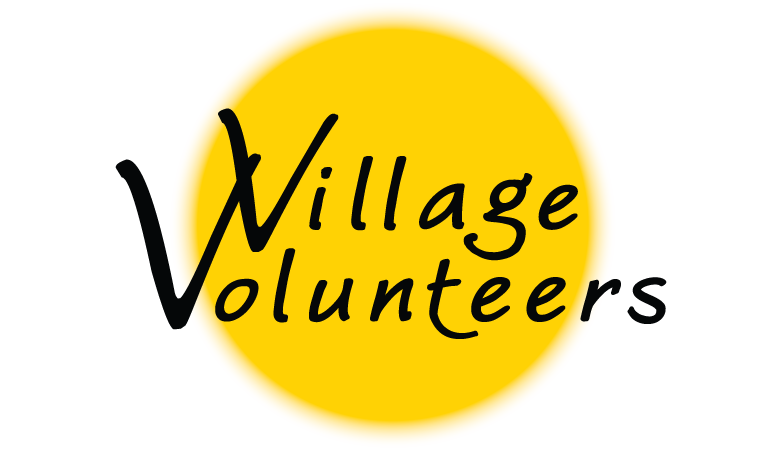India: Coorg Organization of Rural Development
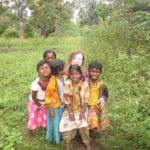 Coorg Organization of Rural Development (CORD) was established in 1981 with the commitment to serve the poor, especially the tribes in southern Karnataka State in India. CORD envisions a society founded on justice and peace, devoid of all forms of disparity, where all people enjoy equal rights and opportunities and receive their rightful share in available resources; thus emerging economically independent and socially dignified. CORD enables all people, irrespective of caste, creed, race, or gender, to discover their inherent abilities, explore opportunities to optimize their potential and build skills and to create better futures.
Coorg Organization of Rural Development (CORD) was established in 1981 with the commitment to serve the poor, especially the tribes in southern Karnataka State in India. CORD envisions a society founded on justice and peace, devoid of all forms of disparity, where all people enjoy equal rights and opportunities and receive their rightful share in available resources; thus emerging economically independent and socially dignified. CORD enables all people, irrespective of caste, creed, race, or gender, to discover their inherent abilities, explore opportunities to optimize their potential and build skills and to create better futures.
We love helping volunteers find their perfect placement. Fill out our Interest Form to get started!
PROGRAM OVERVIEW
CORD was established in 1981 with the commitment to total development for the poor. Located in the southern part of Karnataka India, with palm fringed beaches. CORD enables all people, irrespective of caste, creed, race, or gender, to discover their inherent abilities, explore opportunities to optimize their potential and build skills to create better futures.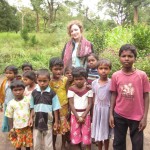
CORD is governed by a body of people committed to the cause of social justice and human welfare in cooperation with professionals proficient in community development.
CORD strives to develop new programs and sustain resources. CORD is supporting 30 villages in Taluks of Kodugu district and Mysore district and providing 30 children with an education.
VOLUNTEER OPPORTUNITIES AT CORD
As a volunteer, you will have the opportunity to work with children, including special needs children, as well as helping in a variety of areas from public health to business that supports community development.
Education/Children:
- Child and adult education
- Teach special needs children
Public Health:
- Provide public health awareness and education
- Provide general healthcare screens
Business:
- Provide skills training and support in general business, development, and marketing
Agriculture:
- Share skills and knowledge related to organic agriculture
- Help with agriculture projects
Building and Construction:
- Provide skills training and education in engineering, building, and construction.
- Participate in engineering, building, and construction projects when funding is available
Social Education:
- Leadership Training,
- Cultural programs,
- Herbal Medicine Preparation and Usage,
- Children’s Rights, Child line (Crises line),
- Forest Rights Act
THE CORD GIVING SCHOOL by Jennie Jepsen, Volunteer since 2008
I volunteered in 2008 which was when I met the founders of CORD, Roy, and Shammi. The passion and dedication they have to support and encourage the unprivileged are inspiring.
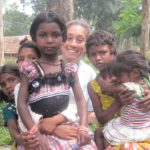 I worked with Shammi and Roy to support and provide new resources for the poor tribal villages, street children, and the rag pickers. With the support and help of a tribal village (Bannueera). We were able to build a small childcare center in their village. We planted a garden for the care center, provided the children with their first school books and shoes. I created a shoe program and gave another village with 40 pairs of shoes for the children.
I worked with Shammi and Roy to support and provide new resources for the poor tribal villages, street children, and the rag pickers. With the support and help of a tribal village (Bannueera). We were able to build a small childcare center in their village. We planted a garden for the care center, provided the children with their first school books and shoes. I created a shoe program and gave another village with 40 pairs of shoes for the children.
In 2012, I lead an amazing volunteer team through Village Volunteers who helped add on to the care center in Bannueera Village. We added a community garden, donated benches, school books and supplies and a blackboard for the teacher. The care center for the children is still thriving to this day.
Shammi and Roy have taught me how powerful education and self-worth can be to help break the cycle of poverty. Sharing their dream of free education for the underprivileged children, as a friend and partner to CORD, we are pleased to announce CORD’s Giving School project in Southern India. We envision the school as green and self-sustaining once it is fully operational. That will allow us to focus on providing a high-quality education for the unprivileged children in these communities. The school will cater to lower Kindergarten through 10thStandard (high school) and when we can, continue support through college levels.
The goals for the Giving School will eventually be both a day and boarding school where the children will have the opportunity for more than just an education. They will have opportunities to learn traditional and modern arts, trade skills, and organic farming. Students sponsored at higher levels will be encouraged to go out into their communities and be challenged to problem-solve issues that assist their community.
We are currently raising funds to buy land, equipment, and materials for the school. Our goal is to raise $73,800 by the middle of 2019 to be able to build the school with operating expenses for the first year.All donations are tax deductible. Please make checks payable to:
Village Volunteers with The Giving School on the memo line to Village Volunteers, 5100 South Dawson, St. Suite 202, Seattle, WA.
Any size contribution will make a difference. and will go directly to build the school and support the education of the children. For more information about donating or volunteering please use the links below:
To volunteer with CORD and/or to make a donation and write in “The Giving School” or a general donation to CORD. To learn more about the children and what you can do to make a difference, please contact Jennie, the Project Manager, at jennie.hymas89@gmail.com
ACCOMMODATIONS AT CORD
Housing
Volunteers are hosted in a double-occupancy guest room adjacent to the CORD office. Each bed has a mosquito net that reaches the floor, and there is a bathroom attached to the guest room with a flush toilet and running water for bathing.
The office is situated in the small town of Kushalnagar, which offers easy access to buses, auto rickshaws, the internet, international telephone booths, market, etc.
Meals
Meals, made of organic foods, are prepared in the home. Volunteers who have special dietary needs or food allergies should note their needs on their volunteer application so Village Volunteers can notify the CORD staff in advance.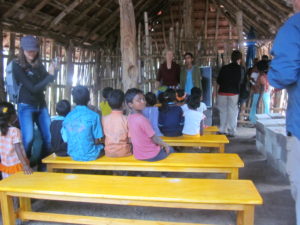
Drinking Water
Purified water is provided for volunteers.
Electricity
Electricity is available most of the time. Should the power fail, there is a backup generator that lasts 12 hours.
Internet Access
Volunteers can access the internet at the CORD office or at an internet cafe in town.
Laundry
Volunteers have the option of laundering their own clothing or paying a fee to have it done for them. All volunteers are asked to launder their own undergarments.
MEET CORD’S PROGRAM DIRECTOR: SHAMMI DAVID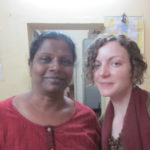
Reflections on Shammi’s childhood and family
I come from a Christian joint family, with father, mother, grandma, grandpa, 2 sisters, 2 brothers, 2 aunts and their 3 children. My childhood was good and comfortable when I think of that time. Our wants were limited and we were satisfied with whatever we had. In my childhood days, I was always with my family and relatives. My contact circle was very, very small.
The challenges Shammi faced getting an education
Since ours was a joint family and my father and mothers’ income was limited, with no ancestral property, we had economic limits. We shared common books, uniforms, fees, food, clothing, and shelter. Church activities kept us busy and satisfied. Parents gave good convent education for all five children in our family. After reaching higher secondary and college education level, I felt we were not able to spend money unnecessarily.
What inspired Shammi to do the work and how she got started?
After my college degree, my first position was in a hospital as a cashier. In that hospital, I was able to see the life and sufferings of the people and I felt that life is more important than anything. This thinking made me change and I started helping people who are in need. Later after marriage, my husband Roy started an NGO. I became part of the group and worked with minority communities, poor and underprivileged groups. Later we focused on the socio economic and education issues in tribal populations in CORD. I believe only education can change the lives of people.
What obstacles did Shammi face?
Many!! Many times there was no support or solidarity from others. There was also very little guidance and never enough financial support.
What are the hopes for the future of CORD?
Surely I hope that I will reach my goals with the help of like-minded people and friends. It may be slow and steady, but surely I hope for the best.
How has your work with Village Volunteers affected CORD?
Village Volunteers has been very positive and supportive. It has been a helping hand. I was in the dark whether to continue my work in Kushalangar or other places. But my partnership with Village Volunteers made me stronger and able to make decisions to continue my work with the Adivasi/tribal/minority and community children in the Coorg area.
How does your community benefit from having volunteers?
Volunteers are useful, helping in office work, doing field visits, and working with the tribal communities. We also receive gifts and funds for improvements in children’s education systems. Personally, volunteer fees helped CORD to stand on its own and be independent. This gave me a more dignified life. Thanks to Village Volunteers and Shana, we will continue our friendship with them long into the future.
Thank you, Village Volunteers and all the volunteers who visit Coorg, Kushalangar.
